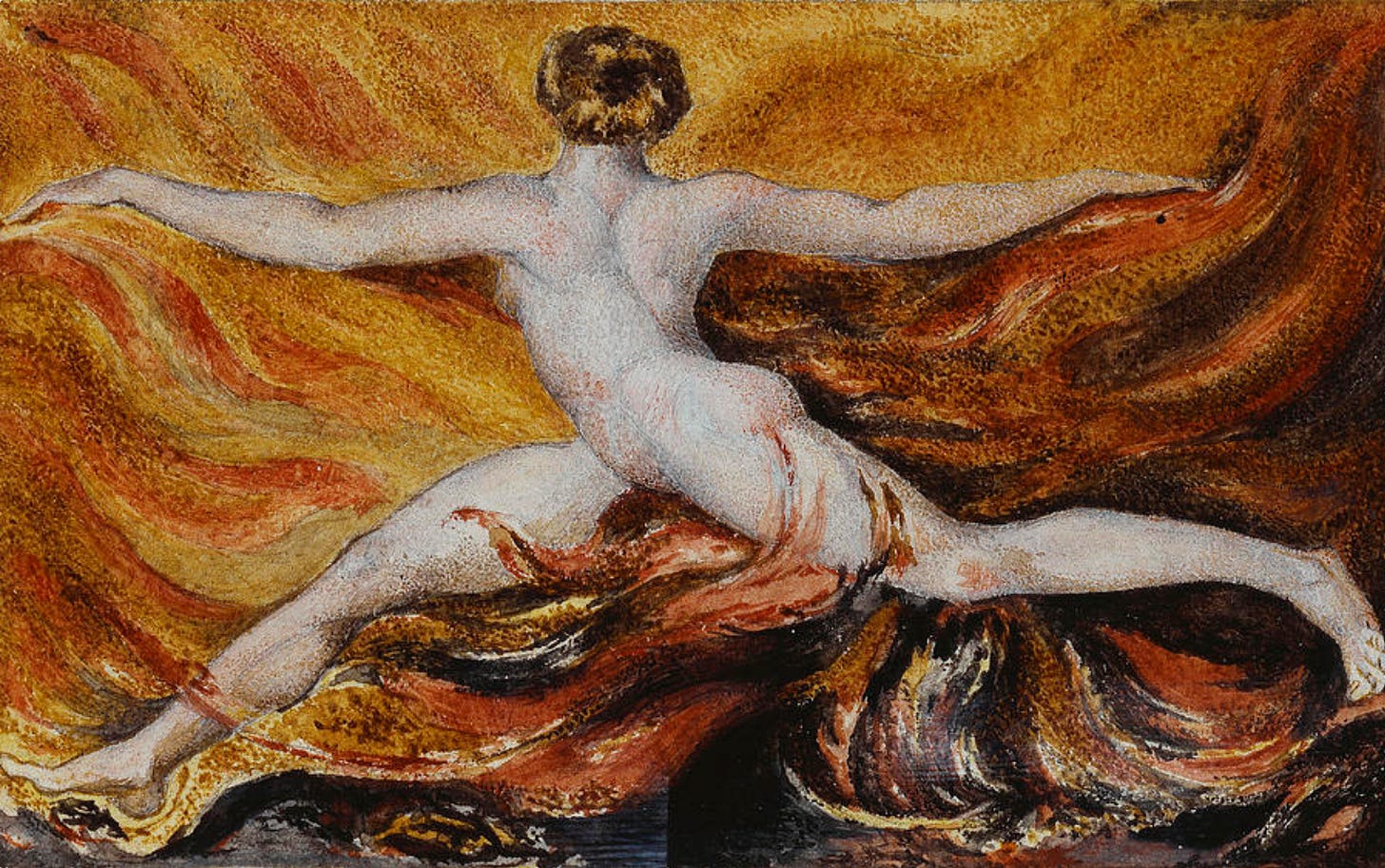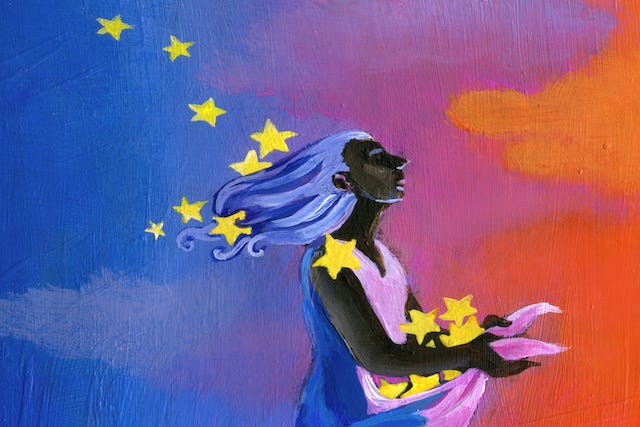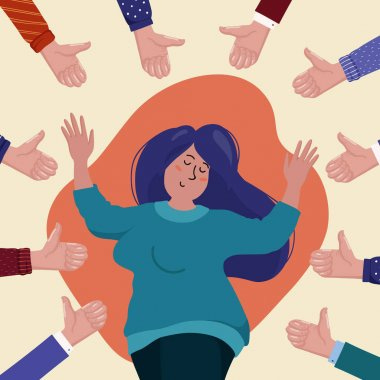After a lot of thinking, researching and yearning for a spiritual truth that is applicable in real life, I landed on the Bhagwad Gita by Eknath Eswaran. I ordered it with a lot of hope, unpacked it with enthusiasm when it arrived, ran my fingers on its orange cover gently and just smelled it while sifting through all the pages in one go. It felt nice, it felt real and it felt like I was headed in the right direction. Then, being a woman on a mission, I took my pencil and began reading, underlining what made sense, what didn’t, jotting down my comments and questions, later to be intercepted in detail while writing these newsletters. I spent an entire day doing the same and had already completed half of it until I felt full. Sometimes, you only realize what’s missing until it finds its way to you. Without further ado, let’s get started:
The book in itself is divided into eighteen chapters and the first one is called, ‘The War Within’ which marks the beginning of the Divine Song where the grief-stricken Arjun is torn into two worlds as he has to kill his relatives to win the war. He expresses his angst to Krishna in the following verse,
“Of what use is a kingdom or pleasure or even life, if those for whose sake we desire these things - teachers, fathers, sons, grandfathers, uncles, in-laws, grandsons and others with family ties - are engaging in this battle, renouncing their wealth and their lives?”
The moment I read the line, ‘if those for whose sake we desire these things,' I had a deja-vu, I was Arjun and Arjun was me. This is exactly what I had written in my first newsletter, the dependency of our self-worth on others, the yearning to prove our mettle to others and the closer they are to us, the stronger the desire. Maybe, not having parents or a partner or kids or even close friends, kills every desire because there really is no one for whose sake you’d desire these things and hence, asceticism was invented.
The more I thought of it, the more it made sense. One classical example could be the relationship between parents and children, we’ve all heard the statements,
“I only work so hard for my children’s sake, for their happiness, for their bright future. For myself, I don’t want much.”
“I only work so hard because I want to make my parents proud, to reciprocate all that they have done for me and give them a comfortable life.”
Are we all trapped in an infinite loop of desires for the sake of others? Renunciation was looking like a scary answer in this labyrinth. But don’t we have any desires solely for ourselves? What would life be like if say, magically, I fall asleep tonight to wake up to be the only human being on this planet without any memory of the past? Orchestrated by some mysterious magic, everything else remains the same, I can still order food, catch a flight, watch movies etc. In that world, I’d probably read all the books in my backlog, paint on the biggest canvas, learn belly dancing, sing my favourite songs, learn to play the ukulele, bake extra sweet cakes and put cheese in everything I eat. Laughs. Well, you know, who’s around to call me fat?
When the concept of money and social approval goes down the drain, the constant mental preoccupation of reaching somewhere ends too. Not only that, with society gone, the conventions go away too. I’ll run naked on the road and never wear a bra, talk to the plants like Prince Charles, go to a restaurant, piss in my glass and drink it while practising urine therapy like Morarji Desai, former PM of India. Sexual urges would probably be satisfied with anything smooth and cylindrical or maybe even a sedated horse. What’s life without a little intoxication? I might become a drug addict or an alcoholic or a chain smoker or maybe all of them but with no one around to compare myself with, will an addiction really be an addiction? It’ll just become a part of my lifestyle like food and water. Oh but the potential harm it could do my brain, well, not that I need my brain to be a computer science Engineer to earn a living. There’s no living to be earned, they’re only a living to be lived. Perhaps, I’d want to travel the world. Without the notion of money or a job or a family, I’ll just catch a flight and be wherever I want to be. And maybe, when travel is so easily achievable, it loses its shine. Maybe, I’d want to climb Mount Everest. Even that becomes easier, with no one to lose when you die, with no family members to dissuade you from doing what you like and asking you to get a stable job. Of course, the need for socialization might throw me in a depressive pit but with no happy people around, will the depression even feel like depression?
With no lines to cross, I’ll become invincible, fearless. But will I have desires solely for myself? When all is said and done, I’m most likely to spend my days observing and writing because that’s perhaps the only activity I do solely for myself, a form of worship, of therapy, of experiencing the mystical oneness.
These choices might differ for every human being like their fingerprints. Newton might have still cared about the apple. Tenzing Norway might have still climbed Mount Everest. Picasso might still have painted. But are those desires or are those the very fabric these humans are made of just as it’s the lion’s nature or dharma to kill without knowing why or how? When you look at it like that, every human being is a species of its own, yet we apply the same set of rules to all of them, without caring about the uniqueness of their nature. What would the lion do if society condemns killing a deer? Will it wear a pantsuit and work in a factory? Oh, how appalling and yet how true.
When you realize this, the concept of individuality feels like a joke and when the seers said, ‘we are all one,’ makes more sense. Maybe, that’s why we crave social approval because the only way that lion could go back to hunting the deer in the forests is by gathering like-minded lions, staging a coup and building a society where killing a deer is the coolest thing ever. Looking at it from the perspective of evolution, being part of a tribe meant survival. Being ousted from that tribe meant death. Social approval was everything. Over the past 10,000 years, owing to cognitive, agricultural, industrial and scientific revolutions, the civilization has reached a point where survival isn’t dependent on social approval but our evolutionary biology hasn’t had enough time to outgrow that need.
Today, humans won’t die if others don’t approve of them, we all realize that, yet we’re all enslaved by the past of our species, manifested in the form of irrational fears. So when Arjun said that for whose sake we desire these things, he probably meant that for whose approval’s sake we desire these things, which in turn aligns with our evolutionary instincts. At first, it looked like I had come a full circle from where I started and life, in this sense, looked like a constant conflict between your true self and the conventions of the majority. But why does it have to be? Why can’t we, as humans, just let people be? If we collectively decide to look at every person for what they are instead of judging them as per our personal barometer, wouldn’t the world be a happier place to live in for everyone? Why do we label things/people as soon as we discover them? Why are humans so judgemental inherently?
Stay tuned for the next newsletter!
Follow me on Twitter for no reason.







